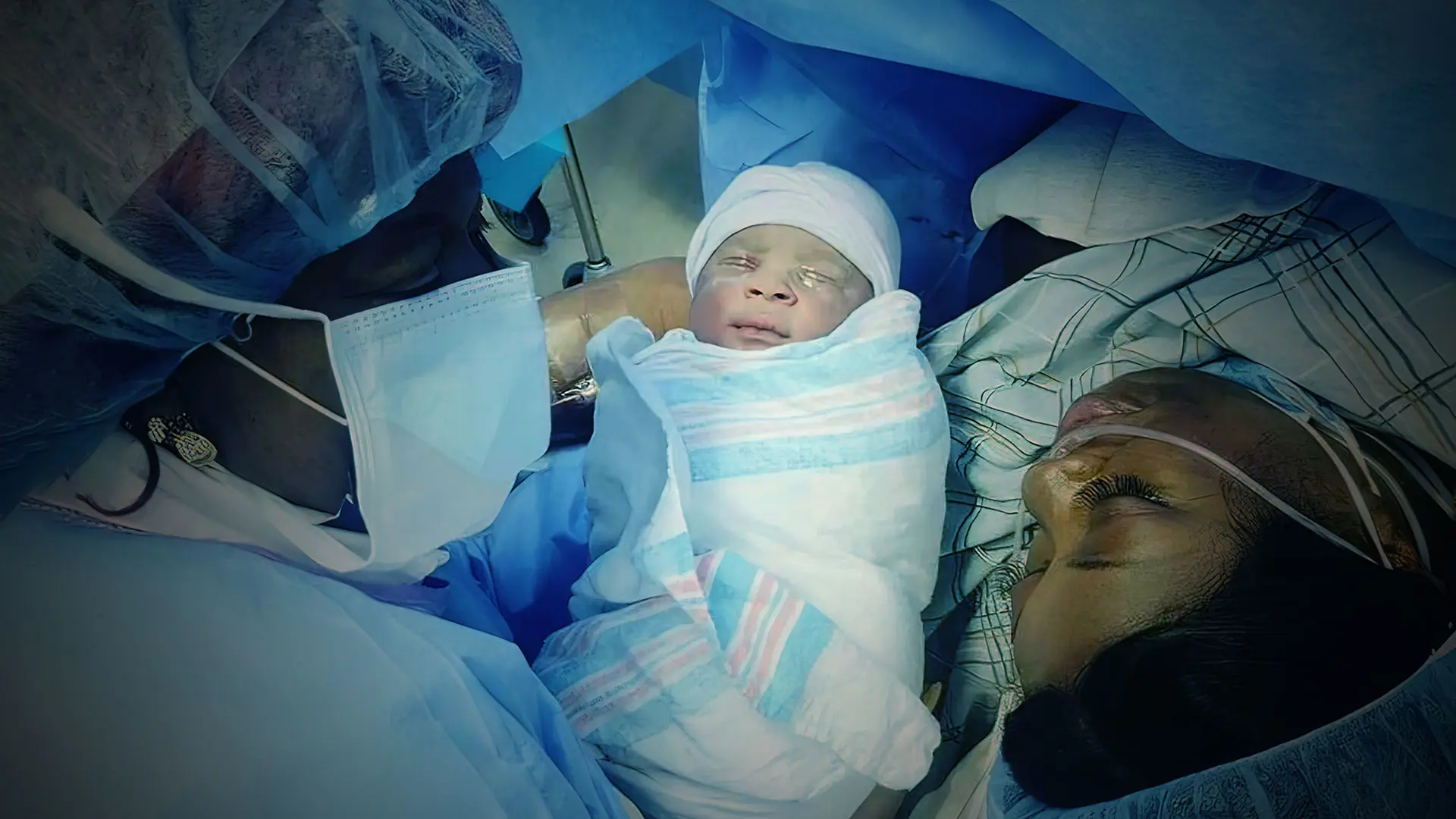A 41-year-old patient who had advanced uterine fibroids and endometriosis delivered a full-term infant with care overseen by Charles Ascher-Walsh, MD, Director of the Fibroid Center at The Mount Sinai Hospital, and Senior Vice Chair of Gynecology at the Mount Sinai Health System, along with a multidisciplinary team in the Raquel and Jaime Gilinski Department of Obstetrics, Gynecology and Reproductive Science.
The patient, Shauna McDonald, started to suffer from heavy and painful periods when she was in high school. She was diagnosed with uterine fibroids, and in college she took birth control pills to help manage her symptoms, but with limited success.
“I still continued with having heavy bleeding into my 20s. I suffered with it, and I got a second opinion from my doctor, and that’s when I was also diagnosed with endometriosis at 27,” Shauna told Today.com in an article about her health journey. “I was 30, going on 31, when I had the first surgery for my fibroids.”
Both uterine fibroids and endometriosis can cause fertility issues. During her 30s, Shauna underwent a series of surgeries to remove both fibroids and the cysts caused by endometriosis, and each time the heavy periods would return within months. She tried to conceive during the times when symptoms were in remission and went through two unsuccessful rounds of in vitro fertilization (IVF).
In 2020, she turned to Mount Sinai’s Fibroid Center and Dr. Ascher-Walsh, who is internationally recognized for his research and expertise in the area of fibroids. At the Center, a team of gynecologists and interventional radiologists offers a range of minimally invasive procedures, including myomectomy, hysteroscopy, and uterine fibroid embolization. Clinicians work with patients to determine the best treatment for the health goals.
In Shauna’s case, having a healthy baby was a top priority, and Dr. Ascher-Walsh recommended an abdominal myomectomy because a preoperative MRI showed numerous fibroids and removing them all through a less-invasive approach would not have been possible.
Shauna’s fibroids affected the cavity of her uterus, making it more difficult for her to get pregnant and increasing her risk of preterm delivery and placental abruption. “She had a more severe case. The first fibroids were diagnosed when she was very young, which is very uncommon,” Dr. Ascher-Walsh says. “She had been trying to get pregnant for years and almost got to the point of giving up.”
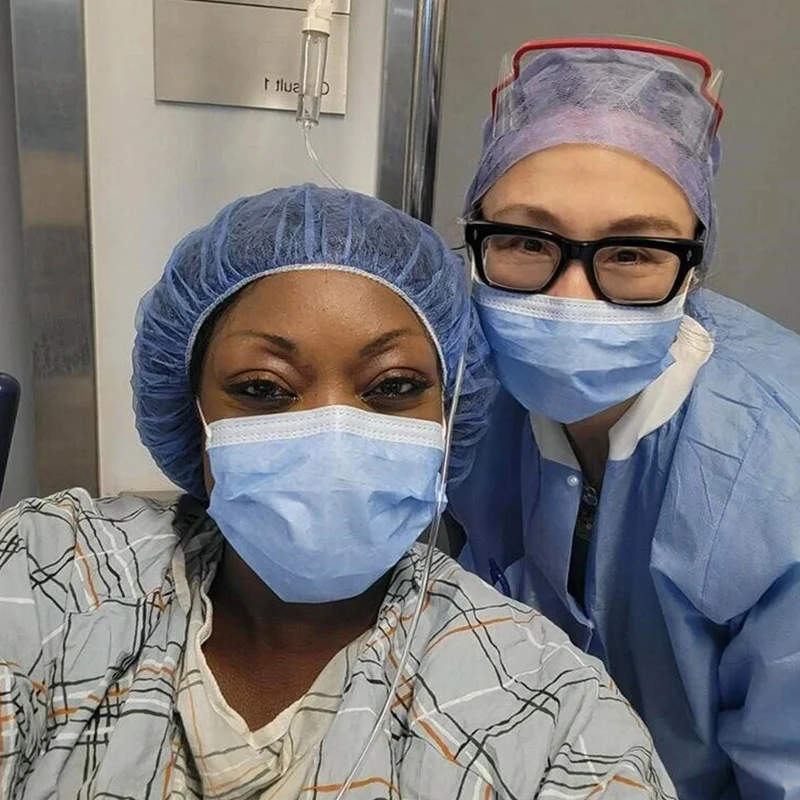
Shauna McDonald, left, and Jane Owen, DO.
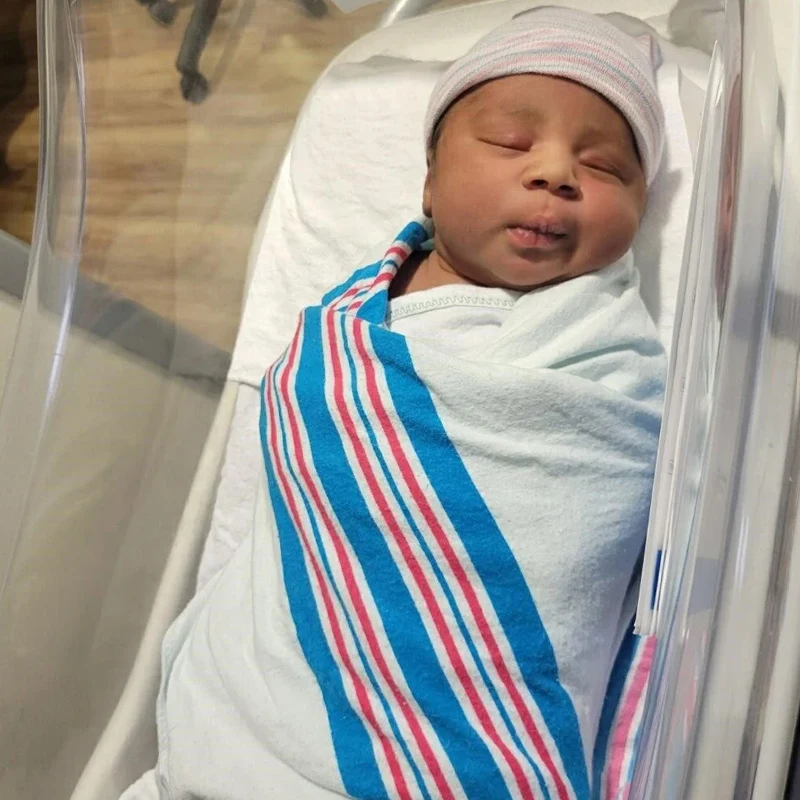
Baby Nobel was born at 37 weeks.
By 2020, Shauna’s period had started and never stopped. “I bled on day 10, on day 14 to the point where I said, ‘I need to call my doctor and tell him that I’m still bleeding,’” she says. “I had surgery in October 2020, and he removed 78 fibroids. That was the most that was ever removed from me, and my uterus was the size of a 16-week pregnancy.”
After the surgery, Dr. Ascher-Walsh encouraged Shauna to try getting pregnant again. “He said, 'You have to heal from this surgery, and you have three months to get pregnant, because if you do not, the fibroids are going to come back,'” she recalls. “I did my IVF, and on the first round I got pregnant. It was truly a blessing.”
Shauna’s pregnancy was managed by Jane Owen, DO, Assistant Professor of Obstetrics, Gynecology and Reproductive Science at the Icahn School of Medicine at Mount Sinai. Because of Shauna's extensive surgical history, she was at risk for placenta accreta, the condition in which the placenta grows too deeply into the uterine wall.
The Maternal Fetal Medicine team performed regular sonograms, and placenta accreta was detected at 20 weeks gestation. When this was discovered, the team met with high-risk obstetrics specialist Rebecca Jessel, MD, Assistant Professor of Obstetrics, Gynecology and Reproductive Science, to discuss the safest approach to care for Shauna and to avoid adverse outcomes with her delivery. Shauna had an MRI at 28 weeks to determine the extent of the placenta accreta.
“It’s a very dangerous pregnancy because as she goes into labor, she could hemorrhage,” Dr. Owen says. “We watched her very closely because we knew this was going to be a difficult C-section.”
Konstantin Zakashansky, MD, Director of Gynecologic Oncology at Mount Sinai West, was also consulted because of the likely need for a hysterectomy due to the placenta accreta. For patients with this condition, a C-section is performed, and the team then assesses the extent of the placenta’s implantation in the uterine wall, and whether the uterus can be safely repaired. Dr. Owen notes that surgeons perform a hysterectomy only if there is no other safe option for the patient.
In March 2022, Shauna underwent a C-section with a multidisciplinary team in the operating room. Because of the severity of the accreta, it was followed by a hysterectomy. “The baby’s fine. The risk is on the mother,” Shauna says. “I believe I was 37 weeks and four days. I didn’t want to deliver him earlier than that because I didn’t want him to have to be in the NICU.” Her son, Nobel, underwent a small surgery to remove an additional ureter to his kidney, but is doing well, and Shauna also made a full recovery.
“These cases can be very challenging to manage, and the surgical risks in patients with previous pelvic surgery, including myomectomies and surgery for endometriosis, can be much higher,” Dr. Ascher-Walsh says. “While it is important to find the right surgeons with the experience to deal with these risks, it is equally important to acknowledge that alternatives to hysterectomy exist and to encourage patients to seek out these alternatives.”
Featured
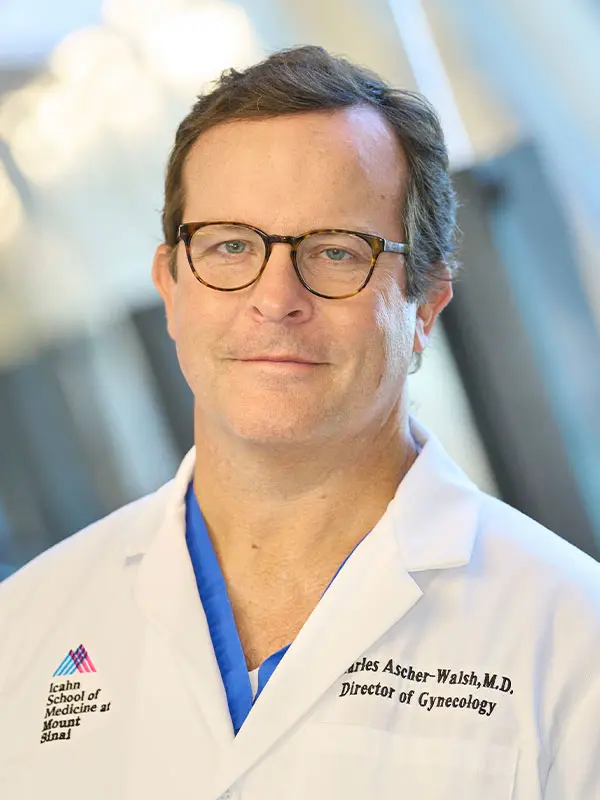
Charles Ascher-Walsh, MD
Director of the Fibroid Center at The Mount Sinai Hospital and Senior Vice Chair of Gynecology at the Mount Sinai Health System
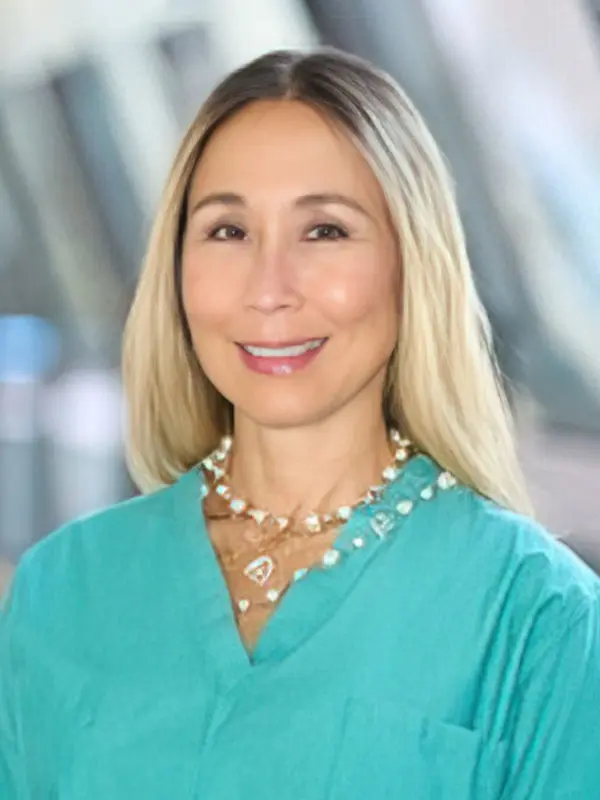
Jane Owen, DO
Assistant Professor of Obstetrics, Gynecology and Reproductive Science
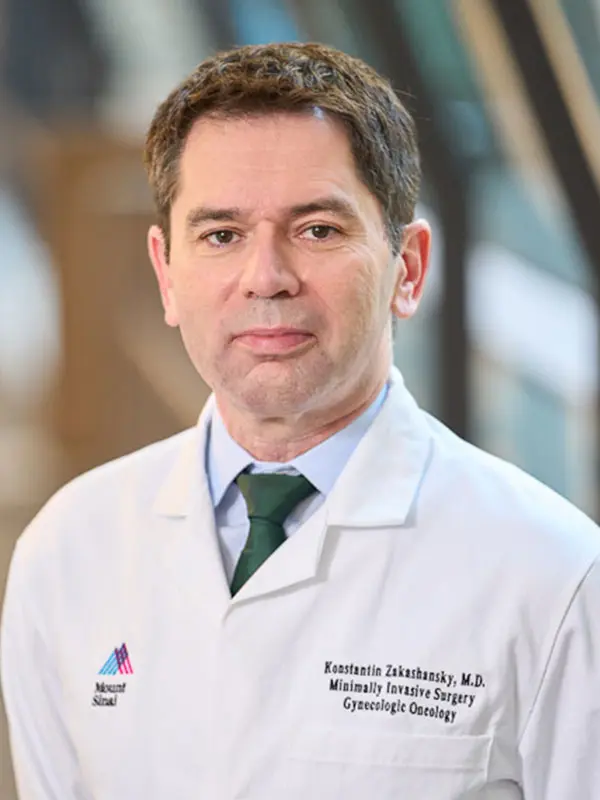
Konstantin Zakashansky, MD
Director of Gynecologic Oncology at Mount Sinai West, and Associate Professor of Obstetrics, Gynecology and Reproductive Science
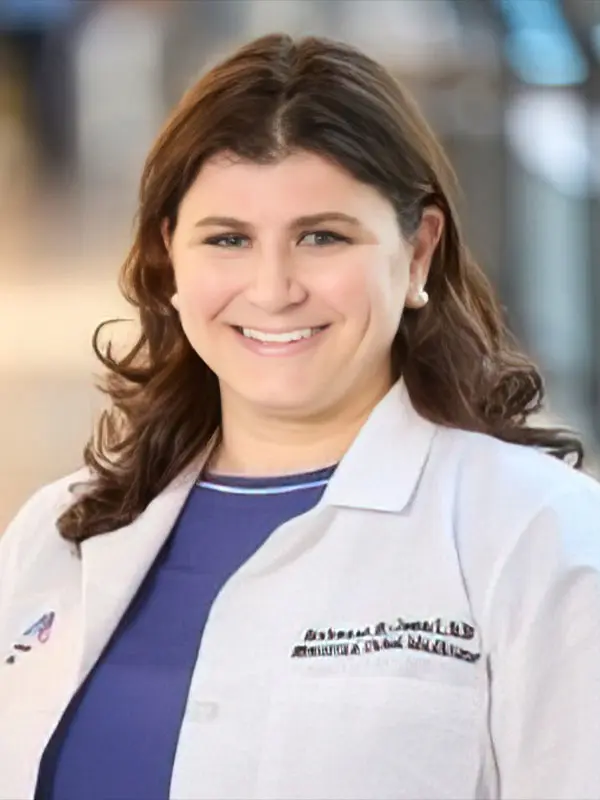
Rebecca H. Jessel, MD
Assistant Professor of Obstetrics, Gynecology and Reproductive Science
